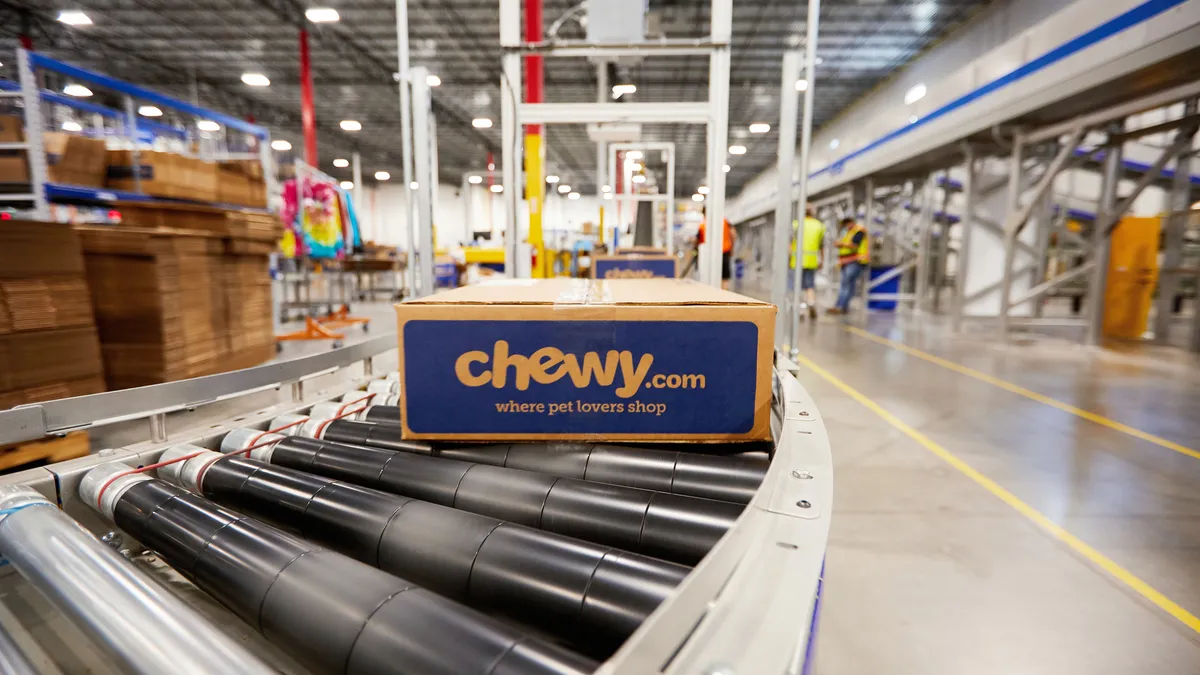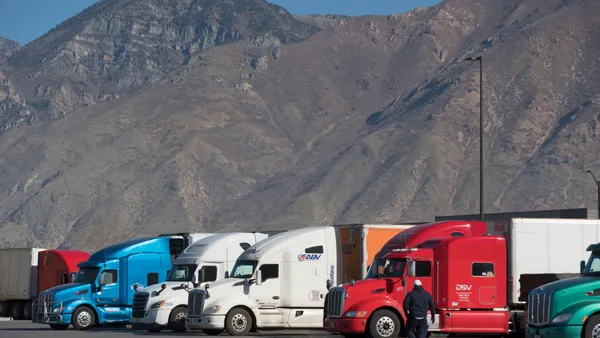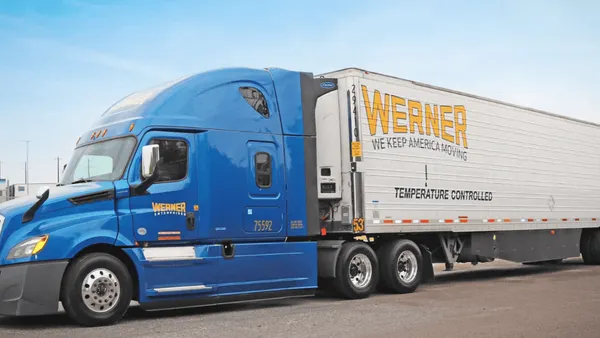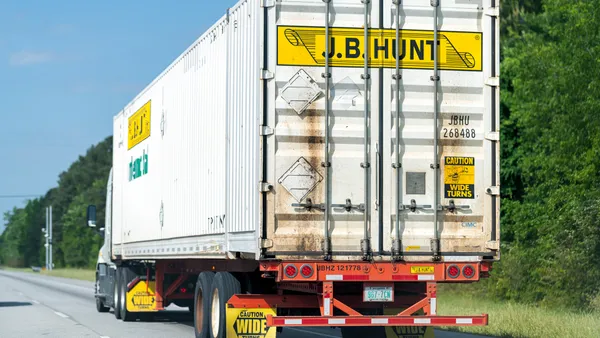Dive Brief:
- Chewy's in-house linehaul service now covers seven fulfillment centers in the online pet products retailer's network, an expansion that will continue in the next several quarters, CEO Sumit Singh said on an earnings call earlier this month.
- Chewy Freight Services launched in the Phoenix market in Q1. By operating part of its middle-mile network, Chewy aims to reduce transportation costs and improve package flow.
- The company plans to scale the initiative over the next "perhaps eight to 10 quarters," according to Singh. "On an entitlement basis, we could see 30%, 40%, 50% of our volume flowing through this."
Dive Insight:
Chewy Freight Services is growing quickly beyond its Phoenix roots as the online retailer pursues less-costly shipping. Chewy lists 16 fulfillment centers in 11 states on its website, and only one of those facilities in Arizona. The company did not respond to a request for comment regarding its future expansion plans or which fulfillment centers are using the linehaul service.
The initiative is one of two programs Chewy launched in Q1 to strengthen its supply chain. Chewy also has an import routing service that allows the company "to route international inventory more optimally and in larger batches," improving inventory allocation, Singh said.
The added supply chain control has become more critical for Chewy as it grapples with increased consumer demand and higher costs stemming from its FedEx shipping contract. In Q1, orders shipped grew nearly 9% YoY while the cost of goods sold increased about 14% YoY.
Chewy's efforts to ease logistics costs — including improved planning and developing better tools and technology — have reduced its reliance on long-distance shipping and the pricier spot market, Singh said.
Other retailers have also bolstered their private fleet operations to give themselves an edge in transportation.
Ashley Furniture's trucking subsidiary last year confirmed plans to buy assets from Wilson Logistics, while Walmart is ramping up recruiting efforts for its private fleet via higher wages and a training program. Dollar General grew its private fleet to over 950 tractors in Q1 as it aims to more than double its fleet size at year's end, COO Jeff Owen said on the company's earnings call.
"As a result of this planned growth, we believe our private fleet will become an increasingly significant competitive advantage as it gives us greater operational control within our own supply chain, while further optimizing our cost structure," Owen said.












